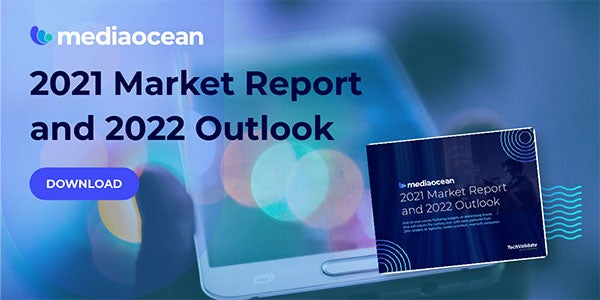By John Nardone, President, Mediaocean
This article is sponsored by Mediaocean.
Just when we thought it was safe to plan a return to the office, here comes the omicron variant and another wave of pandemic uncertainty. With the ongoing impact of COVID, along with the “Great Resignation” and the likelihood of remote working conditions extending well into the new year, marketers everywhere are being forced to reevaluate their ambitions for 2022.
Do we have the courage and wherewithal to take on meaningful advancements in programs and processes? Is sheer will enough? Or will our present circumstances force us to hunker down and try to ride out another year with minimal change? To answer that, we need to look back at how we weathered the first two years of the pandemic.
Change is hard, especially in a pandemic
In March 2020, when we were all suddenly forced to work remotely, many were surprised how well it all went. Many marketers even managed to find an upside, leaning on existing technologies and relationships to get things done. For all the challenges it presented, it seemed like we managed to build a kind of momentum by the end of the year.
But in 2021, the pendulum swung the other way: Waves of resignations, hybrid work models and back-to-school complications made last year more of a sputtering engine than the roaring return to “normal” the world had hoped for.
As we enter 2022 in the shadow of another variant, we can’t avoid change any longer. Despite supply-chain disruptions, advertising has rebounded. We’ve seen foundational shifts in consumers’ media consumption patterns, while their expectations for brand experiences and engagement continue to heighten across all platforms.
Within ad tech, we’ve had successful mergers and healthy IPOs that have changed the landscape. Technology itself has continued to advance, with deep investment in identity and the dramatic rise of CTV among the quickest changes.
Taken together, these shifts are forcing brands to rethink their media strategies, technologies and processes — all at a time when change is incredibly hard to navigate. All that rapid change can make marketers feel like they’ve fallen behind. There’s budget to meet pent-up consumer demand, yes. But what are brands able to do with it?
The simple fact is that change is already way harder in digital advertising than it should be, and that’s because digital advertising is far more disconnected and complicated than it should be. But change brings opportunity for those that have the courage and determination to innovate despite the challenges.
The ad tech implications of transformation
Few of today’s marketing organizations have the internal resources to take on transformative change. Instead, many brands try to scale down and simplify. They eliminate some vendor relationships. They move dollars from the open web to walled gardens, where campaigns can be easier to execute. Generally speaking, they shift their focus away from return on investment and toward return on effort.
But while they can alleviate the pressure of day-to-day operations, these measures are not sufficient to keep pace with the evolving consumer media reality, much less drive competitive advantage. They’re just not sustainable in today’s changing media landscape.
The pandemic has put even greater emphasis on the quality of technology partnerships. Today, brands and their agency partners want fewer and more meaningful direct relationships, with more capabilities “under one roof.”
They want interoperable tools that are easier to use. They want solutions that are not biased based on media ownership. They need platforms that don’t hold their dollars or their data hostage. And perhaps most importantly, they need more and better service from their tech partners.
As marketers struggle to find, maintain and connect talent within their own workforces, they are seeking external relationships that provide tools for simplification and transformation, but also the consultative support needed to pivot from strategy into execution. After all, marketing organizations aren’t trying to solve technology challenges – they’re trying to solve capability challenges.
So if a partner can’t help to address your workforce challenges in this time of necessary transformation, they can’t help you – period. But the right partner can bring the tech and know-how you need to meet this moment, while easing the burden on your organization and people.













